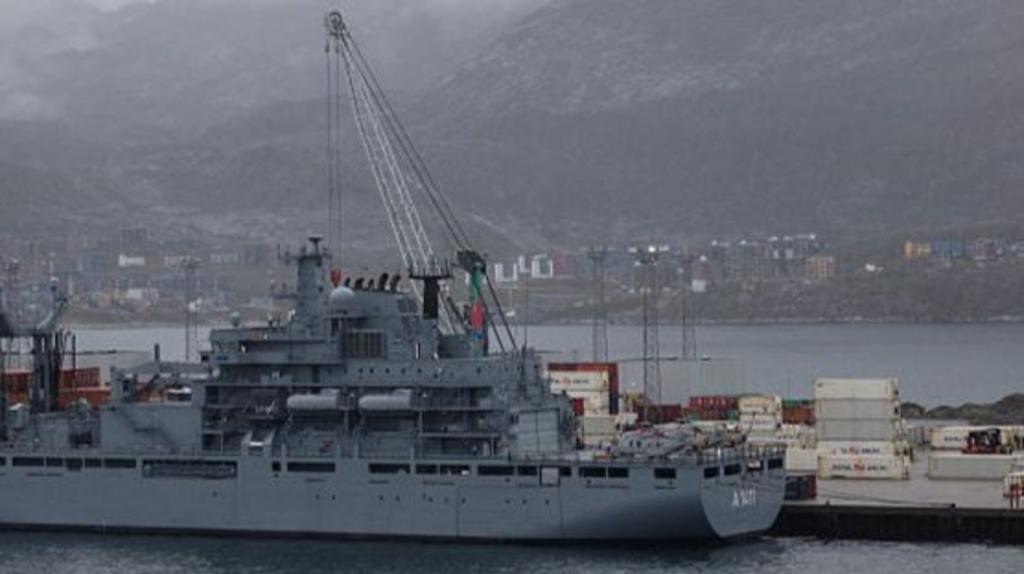Denmark’s foreign minister summoned the top US diplomat in Copenhagen on Wednesday following reports of alleged covert American operations in Greenland.
According to Denmark’s public broadcaster DR, sources suggest the alleged operations aimed to infiltrate Greenlandic society and promote secession from Denmark in favor of the United States. The report noted ambiguity regarding the affiliation of the individuals involved.
Danish intelligence services have issued warnings regarding “various kinds of influence campaigns” targeting Greenland.
A State Department spokesperson confirmed that Chargé d’Affaires Mark Stroh met with the Ministry of Foreign Affairs, describing the exchange as a “productive conversation” that “reaffirmed the strong ties” between Greenland, Denmark, and the US.
The spokesperson declined to comment on “the actions of private US citizens in Greenland” but affirmed that the US has consistently respected the right of the people of Greenland to “determine their own future”.
Foreign Minister Lars Lokke Rasmussen stated that “any attempt to interfere in the internal affairs of the Kingdom [of Denmark] will of course be unacceptable,” which prompted the summoning of the US chargé d’affaires.
Former US President Trump has repeatedly expressed interest in annexing Greenland, a semi-autonomous territory within the Kingdom of Denmark. Vice-President JD Vance has also criticized Copenhagen for alleged underinvestment in the region.
During a visit to Greenland several months prior, Danish Prime Minister Mette Frederiksen cautioned the US against such actions, asserting that “you cannot annex another country”.
The Danish foreign minister conveyed in a statement to the BBC that the government is “aware that foreign actors continue to show an interest in Greenland and its position in the Kingdom of Denmark”.
“It is therefore not surprising if we experience outside attempts to influence the future of the Kingdom in the time ahead,” he added.
Denmark, a member of NATO and the European Union, has traditionally viewed the US as a close ally. Trump’s expressed desire to acquire the semi-autonomous territory has caused consternation among Danes. The former US president even suggested earlier this year that he would not rule out seizing it by force.
Denmark’s PET security and intelligence service assessment indicated that influence campaigns would likely aim to “create discord in the relationship between Denmark and Greenland”.
This could be achieved by exploiting “existing or invented disagreements” through “traditional, physical influence agents or via disinformation”, the agency noted. PET has reinforced its presence in Greenland and bolstered cooperation with local authorities.
With the US currently lacking an ambassador in Copenhagen, Rasmussen summoned Mark Stroh, the chargé d’affaires and highest-ranking diplomat in the Danish capital.
Notably, Lars Lokke Rasmussen had previously summoned the US chargé d’affaires earlier this year in response to a separate report in May, which alleged that US spy agencies were directed to focus their efforts on Greenland.
Wednesday’s report from DR detailed the visit of an American individual to Nuuk, Greenland’s capital, purportedly seeking to compile a list of Greenlanders who supported a US takeover of the island. The aim, according to DR, was to recruit them for a secession movement.
The Wall Street Journal’s report in May similarly alluded to gathering information about Greenland’s independence movement, as well as sentiments regarding American mineral extraction.
At the time, then-US Director of National Intelligence Tulsi Gabbard did not deny the report but accused the Journal of “breaking the law and undermining our nation’s security and democracy”.
Greenland’s relationship with Denmark is complex. While possessing broad self-government since 1979, foreign and defense policy remains under Copenhagen’s jurisdiction.
Although most Greenlandic political parties advocate for independence, differing views exist on the speed of its pursuit. Despite Greenlanders having the right to call a referendum since 2009, polls suggest a vast majority do not wish to become part of the US.
During a March visit to a US military base on the island, US Vice-President JD Vance asserted that Denmark was not adequately protecting US troops and Greenlanders from Russia, China, and other countries allegedly interested in Greenland’s potential mineral wealth and Arctic naval routes.
However, Greenland leader Jens-Frederik Nielsen clarified in May that the US would not be taking over the territory: “We don’t belong to anyone else. We decide our own future.”
According to Jens Ladefoged Mortensen of the University of Copenhagen, the Danish foreign minister’s latest summons of the US chargé d’affaires represents a “diplomatic yellow card” unprecedented in Danish-US relations.
“This hostile attitude towards Denmark from the Trump administration is shocking,” he told the BBC. “As a pro-American country we’re asking why are you doing this.”
In recent days, one of Denmark’s largest companies has also found itself entangled in US government actions, following an order to halt the construction of a major wind farm off the coast of Rhode Island.
The Revolution Wind project, approximately 80% complete, is being managed by Danish multinational wind farm developer Orsted, which is 50.1% owned by the Danish state.
It is the latest wind power initiative to be targeted by President Donald Trump, who stated last week “we’re not doing the wind”.
Shares in Orsted experienced a 16% plunge on Monday in response to the so-called stop-work order, although they have since recovered some of the losses.
The company reports that it has already installed 45 out of 65 turbines in the project, which aims to supply power to 350,000 homes.
PostNord blames sharply falling demand – will other post firms around the world follow suit?
The government hopes abolishing the sales tax will encourage more people to buy books.
The crash at a railway crossing in southern Jutland involved a lorry transporting farm waste.
Aalborg Zoo says the unique scheme is aimed at mimicking what its predators would eat in the wild.
Rasmus Hojlund says he “could have done with some help” in the Manchester United attack in previous seasons – and is “more than ready” for more competition in the main striker role.

